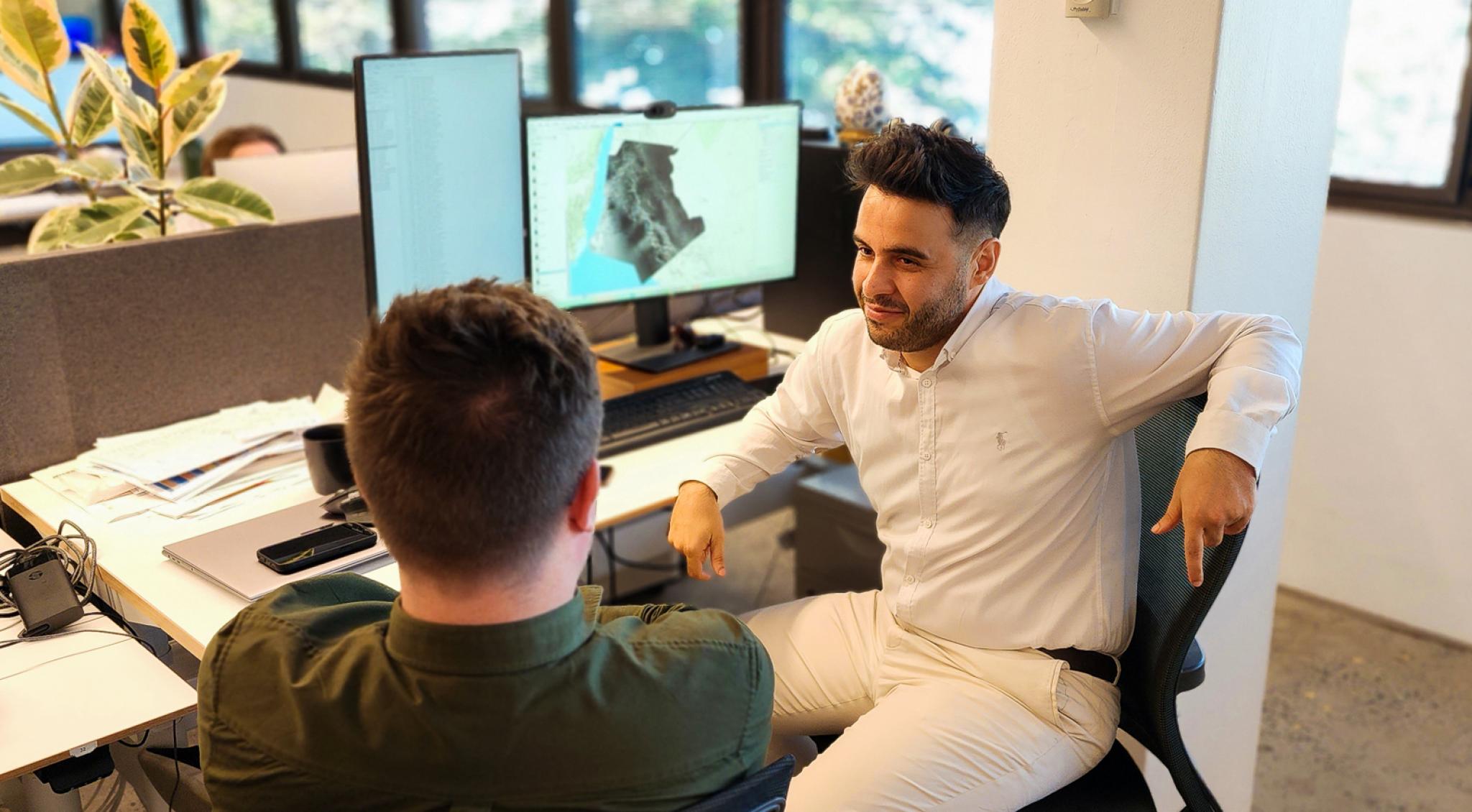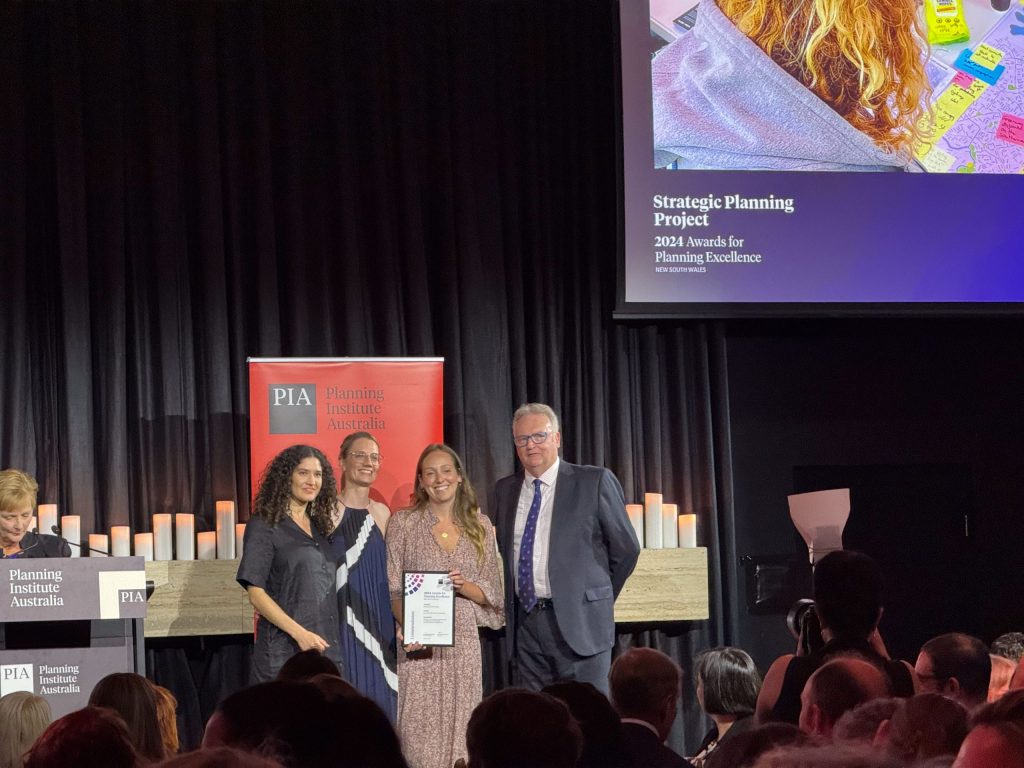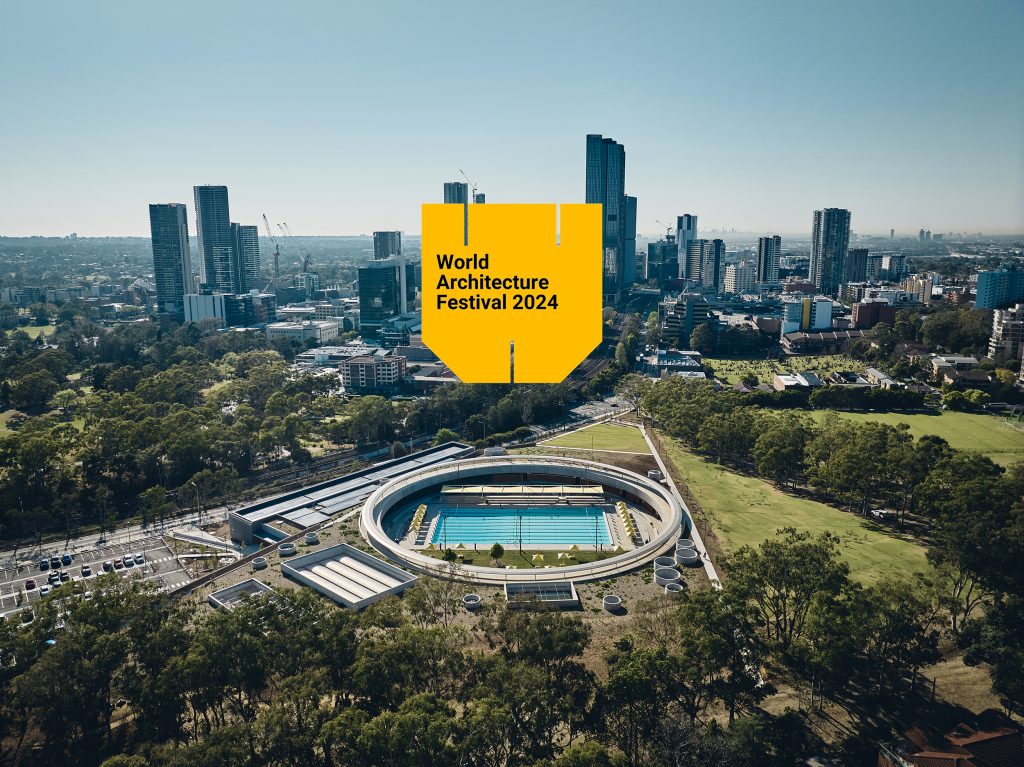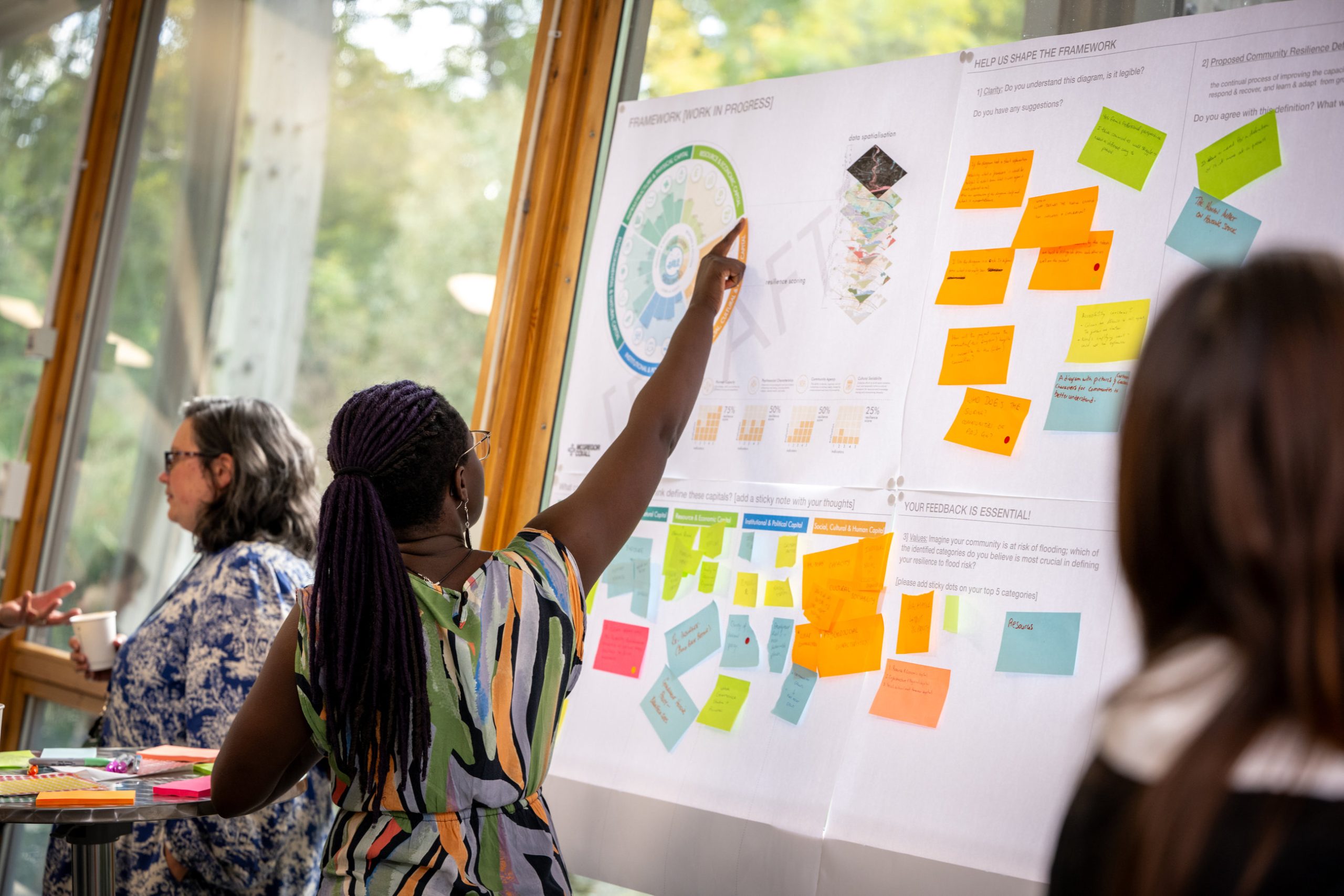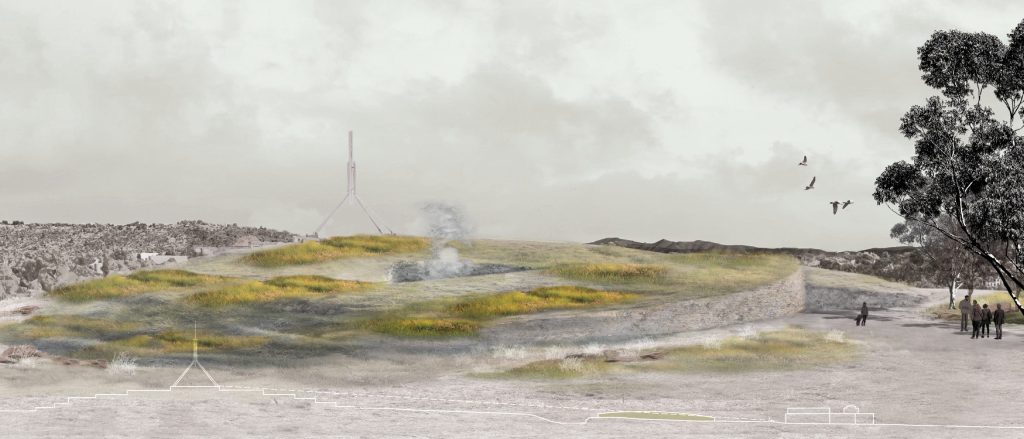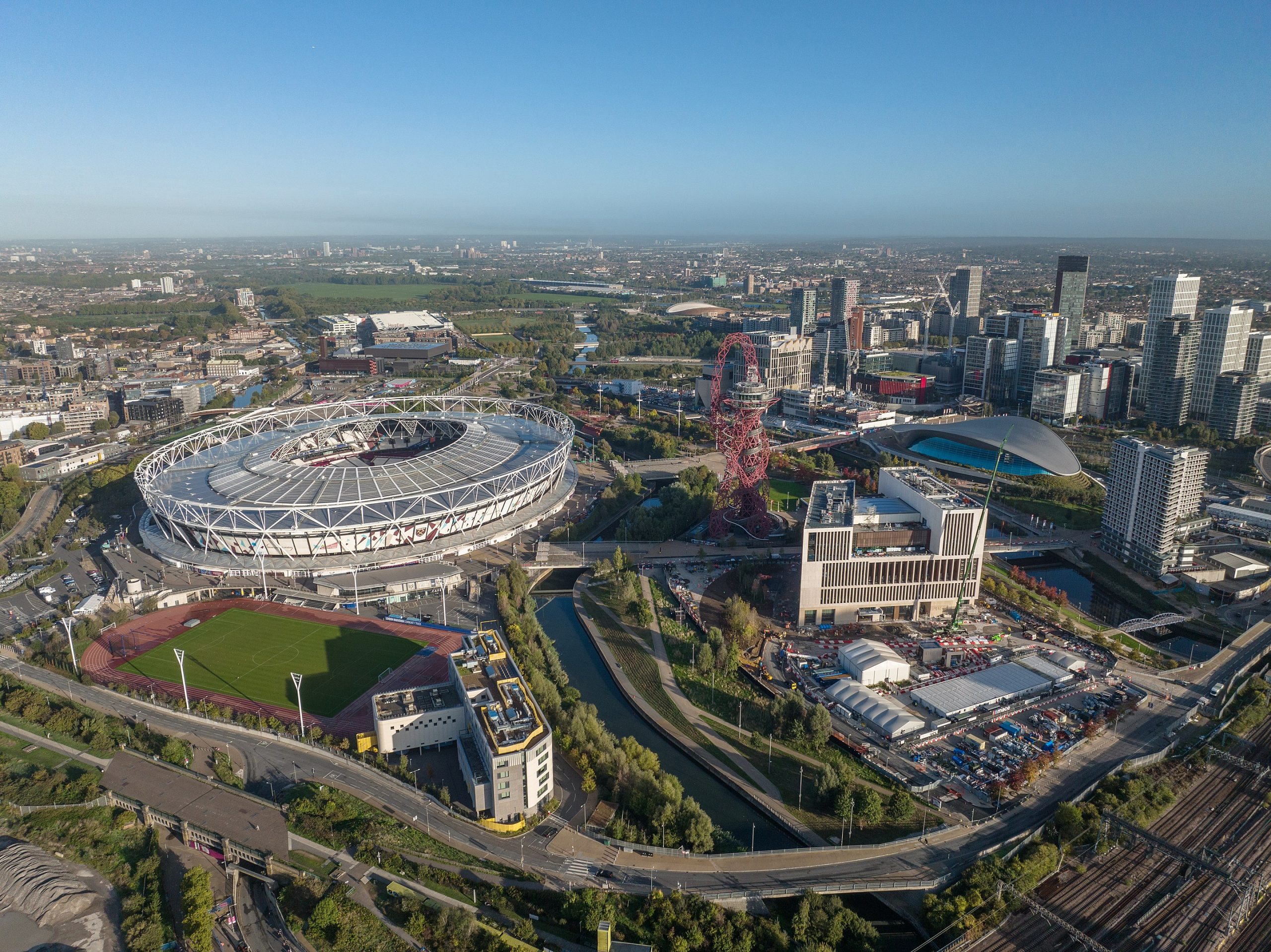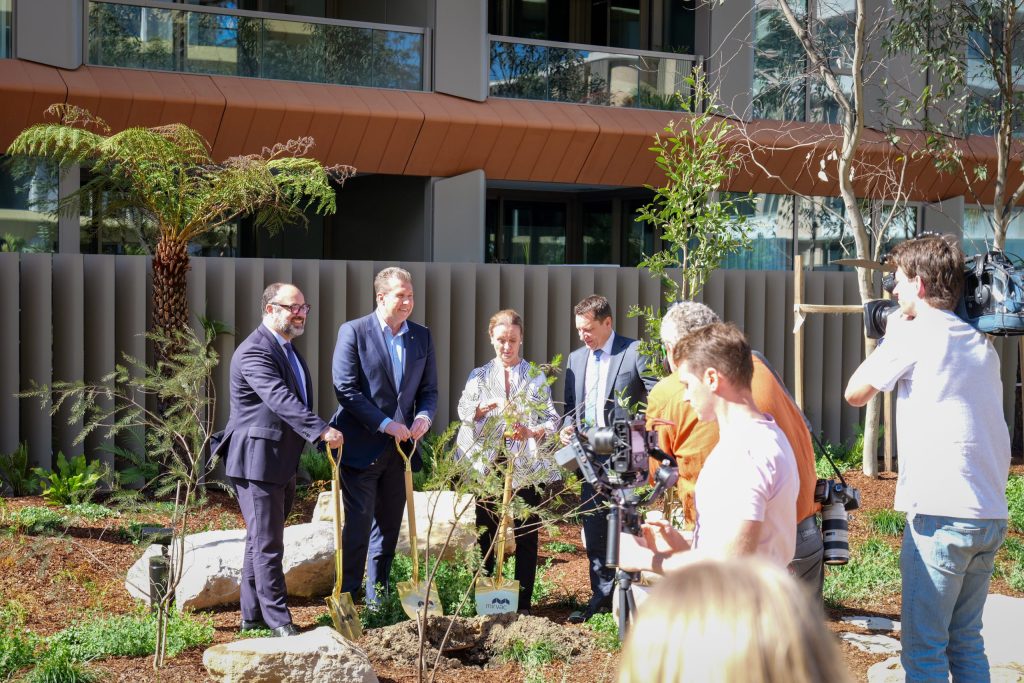Prosperity by design: Biourbanism Lab discipline unveiled
Evidence-based design is fundamental to the prosperity and resilience of the world’s cities. As such, McGregor Coxall is proud to unveil its fourth official discipline helping cities make more informed decisions about their futures: the Biourbanism Lab.
Biourbanism Lab is McGregor Coxall’s research division established to help mayors, planners, and designers increase resilience in cities through digital twins, geospatial technologies, data analysis, and Artificial Intelligence. Data-driven modelling and research directly support McGregor Coxall’s Landscape Architecture, Urban Design, and Environment disciplines, each leveraging insights from 4D location intelligence and geospatial technologies to inform design.
‘The Lab’ is led by, and comprised of, academics and scientific practitioners with expertise in geospatial sciences, computational design, and architectural practice. Dr. Yazid Ninsalam (Associate Director and Biourbanism Lab Discipline Lead), Dr. Robyn Mansfield (Associate Director), Dr. Hossein Rizeei (Geospatial Lead), and Thomas Chapman (Computational Design Lead) comprise the team’s leadership structure, drawing from decades’ worth of combined experience across their respective fields. The rest of the Biourbanism Lab team includes Liliana Ructtinger (Research Project Manager), Manasi Sabnis (Geospatial Analyst), Dafni Filippa (Strategic Designer) and Hanny Paing (Computational Designer).
Associate Director and Biourbanism Lab Discipline Lead, Dr. Yazid Ninsalam, said: “There are exciting innovations emerging from the built environment profession with respect to the development of climate change solutions. Our team is constantly revising our approach in collaboration with scientists developing solutions for the environmental crisis and communities, whose local knowledge can help guide the creation of resilient cities.”
The Biourbanism Lab narrows the gap between knowledge and action to help cities and communities make more informed decisions about projects by validating decision making through data modelling processes. This approach puts mayors, governments, planners, and citizens in a better position to understand a city’s composition, operations, and carbon emissions.
Where the Lab comes in is through the visualisation of data – think dashboards linked to live digital twins – which show the cause and effect of major city-shaping works on our environment. New technology allows our digital models to incorporate real time sensing finally bringing the concept of the city as a cognitive system to life.
The Lab’s name draws inspiration from McGregor Coxall’s core design philosophy, ‘Biourbanism’, a systems-based framework for helping cities and places achieve resilience and prosperity. Founded on landscape architecture, urban design, and environmental sciences, ‘Biourbanism’ is a city planning and urban design model that envisions cities as a novel form of nature, human-engineered systems whose survival is inextricably linked to the planet’s ecosystems.
Comprising ten systems (five Bio and five Urban systems) managed mutually through data and design, a paradigm shift in thinking promotes opportunities for decarbonisation in cities by taking a more holistic approach to planning. Bio systems include Landscape, Food, Citizens, Waste, and Water, while Urban systems include Economy, Energy, Infrastructure, Mobility, and Technology.
The Lab’s toolkit of analysis, digital environment modelling, and computational design offerings link directly to the ten systems. Outside of digital twins, such outputs include bushfire prediction, urban heat mapping, tree and vegetation canopy assessments, coastal and river tide detection, building footprint and development suitability assessments, and pedestrian movement and walkability assessments. Computational design is used to inform and construct evidence-based design using algorithmic agents and procedural methods to translate analysis into beautiful and resilient outcomes for future communities as well as quantifying and optimising the efficiency of construction.
Currently, the Lab is working with governments, academia, and consultants globally. Projects include the development of a spatialised 3D model for one of Western Sydney’s town centres, extensive geospatial and environmental analysis for Australia India Water Security Initiative (AIWASI) in Delhi, India, and composition of a digital twin for design testing within the Snowy Mountains Special Activation Precinct (SAP) project.
McGregor Coxall is partnering with the geospatial services global market leader, Esri to build mapping and analysis tools through their geographic information system platform.
The launch of the Biourbanism Lab coincides with the impending release of ‘Biourbanism: Cities as Nature’, Chief Design Officer of McGregor Coxall, Adrian McGregor’s forthcoming book which details the framework as a blueprint for creating healthier, more resilient cities.
